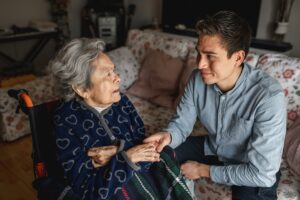 Dementia is a condition that affects the brain and results in impaired thinking, memory, and behavior. While there is no cure for dementia, you can take steps to lower your risk of developing this debilitating disease.
Dementia is a condition that affects the brain and results in impaired thinking, memory, and behavior. While there is no cure for dementia, you can take steps to lower your risk of developing this debilitating disease.
One such step is engaging in leisure activities that stimulate the mind and keep your brain active. In fact, recent research has shown that certain leisure activities may be linked to a lower risk of dementia. So, if you’re looking for ways to stay mentally and physically healthy as you age, add some of these activities to your repertoire.
Advertisement
Previous studies have shown that leisure activities are associated with various health benefits, including reduced atrial fibrillation and a lower cancer risk. However, there has been conflicting evidence of the role of leisure activities like playing sports, volunteering, and doing crafts in reducing dementia. This is what led researchers from the Peking University Sixth Hospital in Beijing, China, to start a new study.
The analysis involved a review of 38 studies from around the globe that looked at more than 2 million people who did not have dementia at the start of the study. All participants were followed for at least three years. Information was provided about their leisure activities through questionnaires and interviews and divided into cognitive, physical, and social activity.
During the studies, 74,700 people developed dementia. Researchers found that these participants had a lower report of leisure activities. It was concluded that those who engaged in leisure activities had a lower risk of developing dementia than those who did not engage in leisure activities.
Of the three groups of leisure activities, mental activities were found to have the best reduction in risk for dementia. These consisted of intellectual activities, including reading or writing for pleasure, watching television, listening to the radio, playing games or musical instruments, using a computer, and making crafts. Participants who recorded doing these activities regularly had a 23% lower risk of dementia.
Those who recorded physical activities including walking, running, swimming, bicycling, using exercise machines, playing sports, yoga, and dancing had a 17% lower risk of dementia.
Advertisement
Social activities helped to reduce the risk of dementia by 7%. These types of activities mainly referred to communication with others and included attending a class, joining a social club, volunteering, visiting with relatives or friends, or attending religious activities.
“This meta-analysis suggests that being active has benefits, and there are plenty of activities that are easy to incorporate into daily life that may be beneficial to the brain,” said study author Lin Lu, Ph.D. “Our research found that leisure activities may reduce the risk of dementia. Future studies should include larger sample sizes and longer follow-up time to reveal more links between leisure activities and dementia.”
Supporting Brain Function
As we age, numerous factors can affect the brain, affecting concentration, memory, and overall cognitive function. The Smart Pill can help counteract these effects through nine ingredients that help support, nourish, and maximize brain health and cognitive function. These include ginkgo biloba, huperzine A, bacopa extract, rosemary extract, and a B vitamin complex. This unique formula helps boost circulation, fight free radicals, and help to promote clear thinking.
